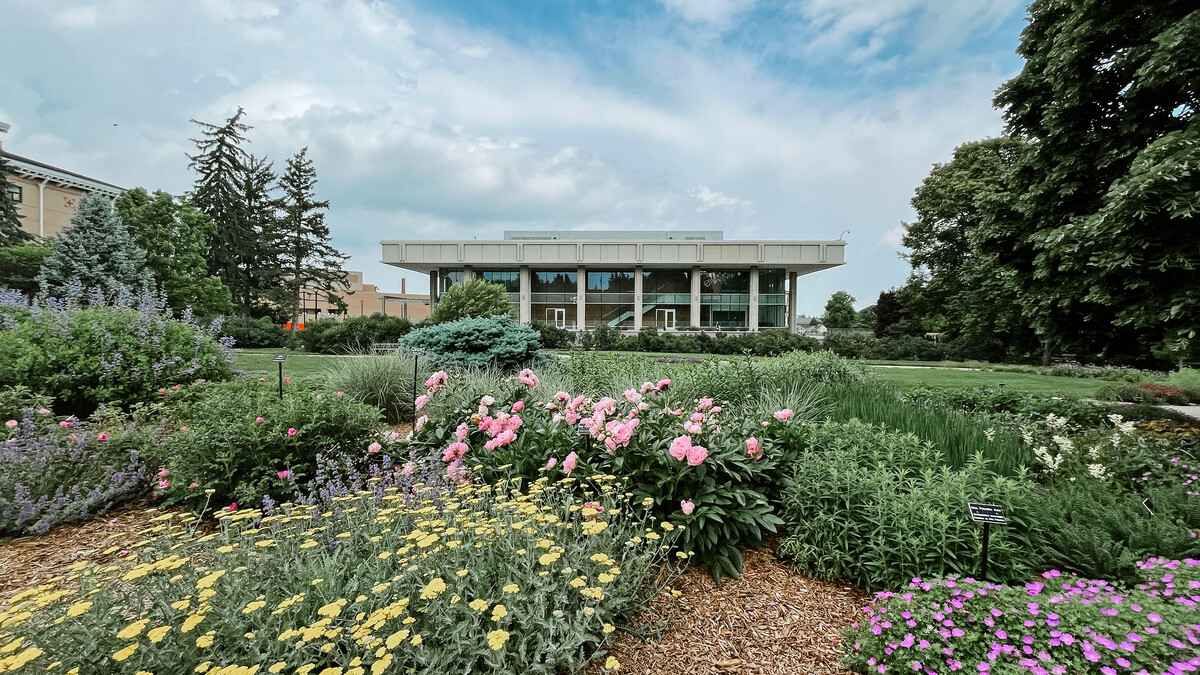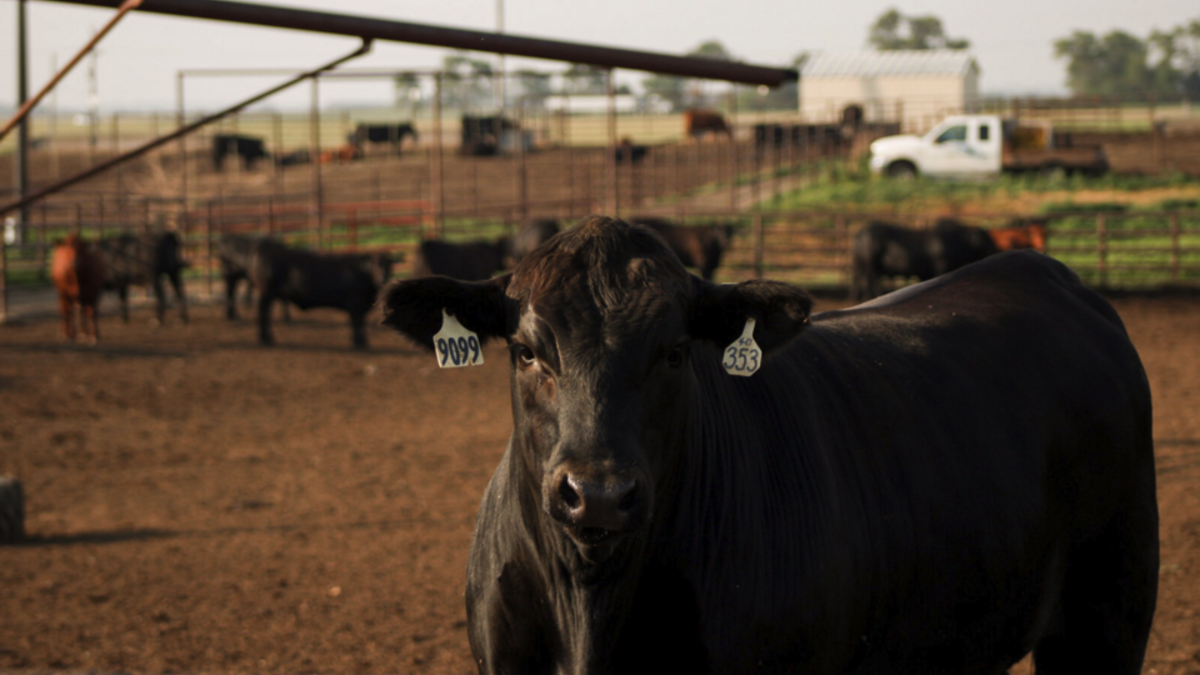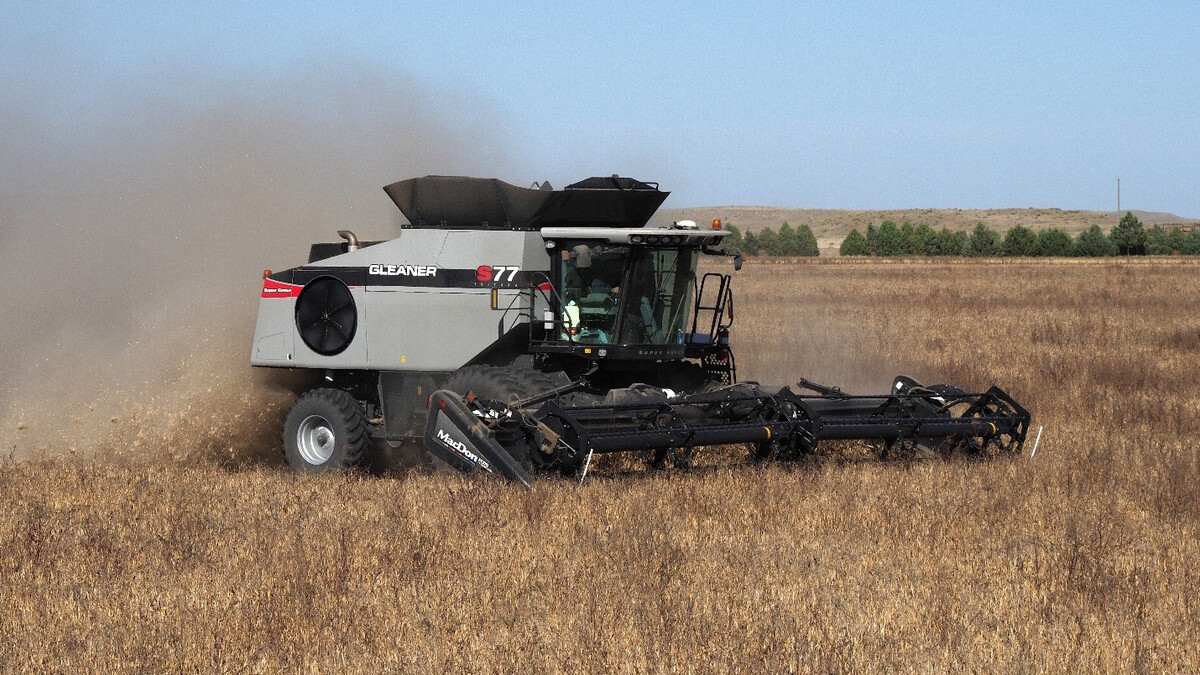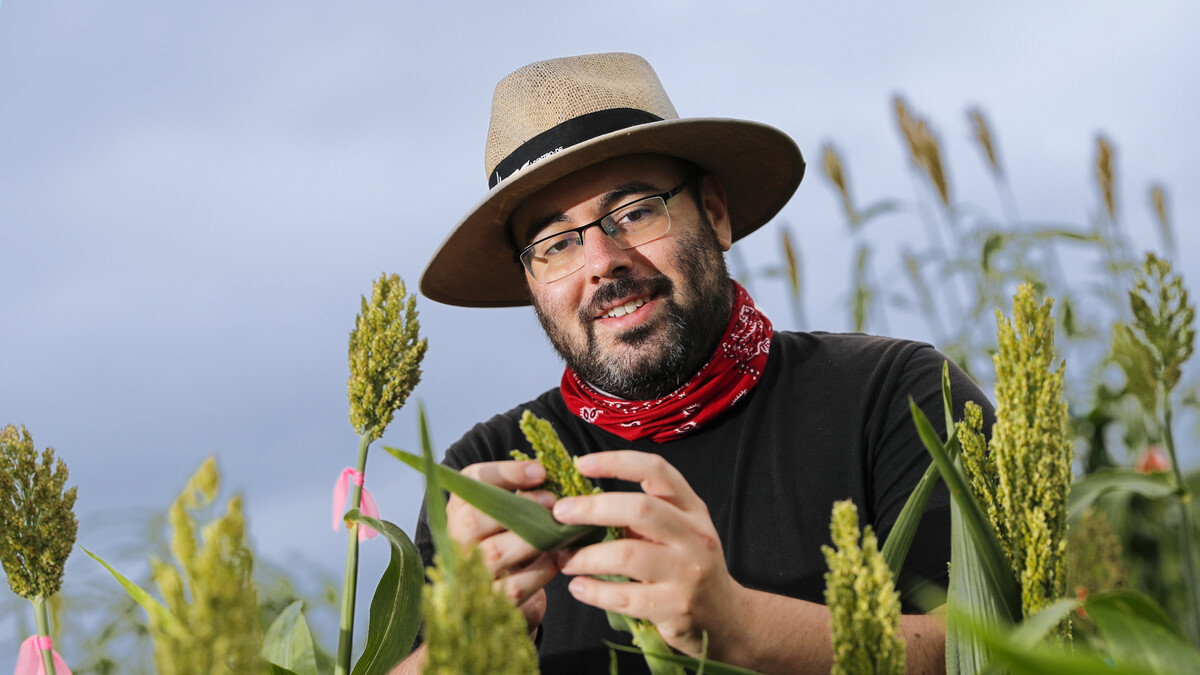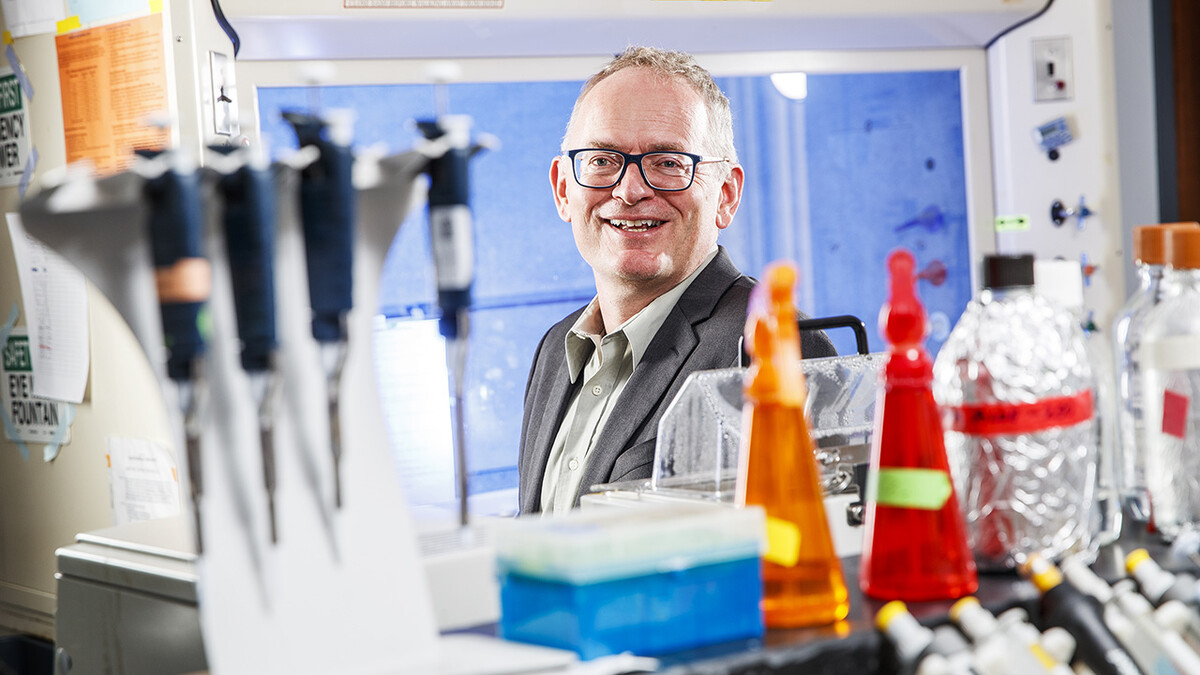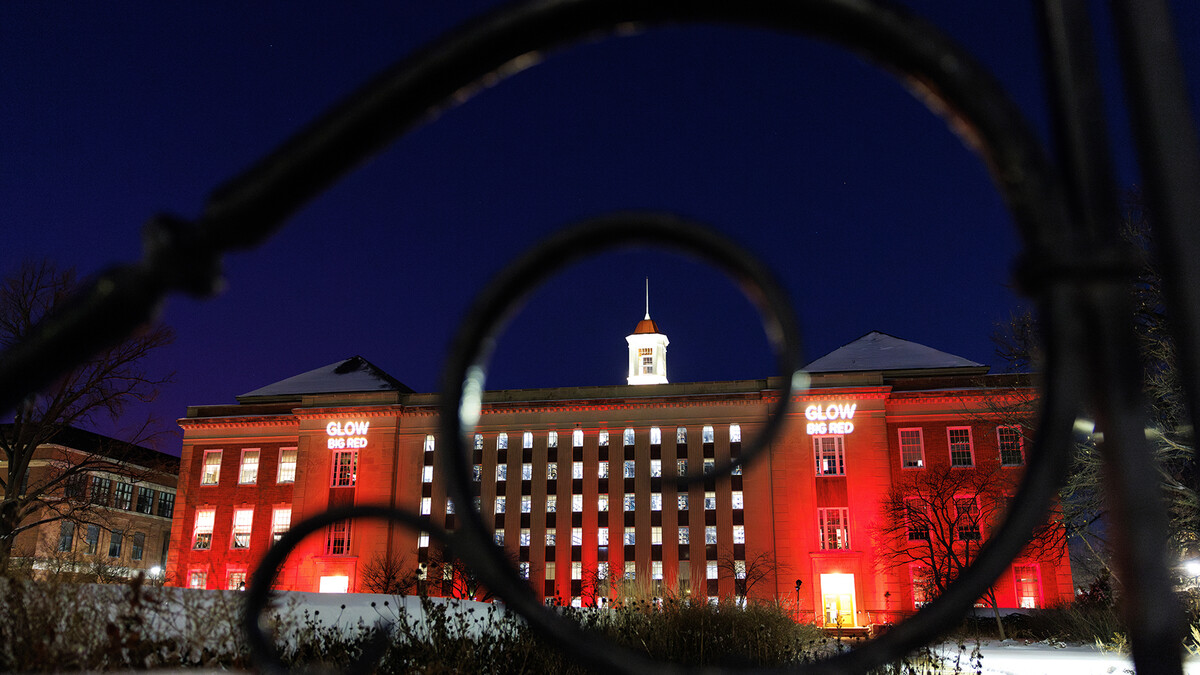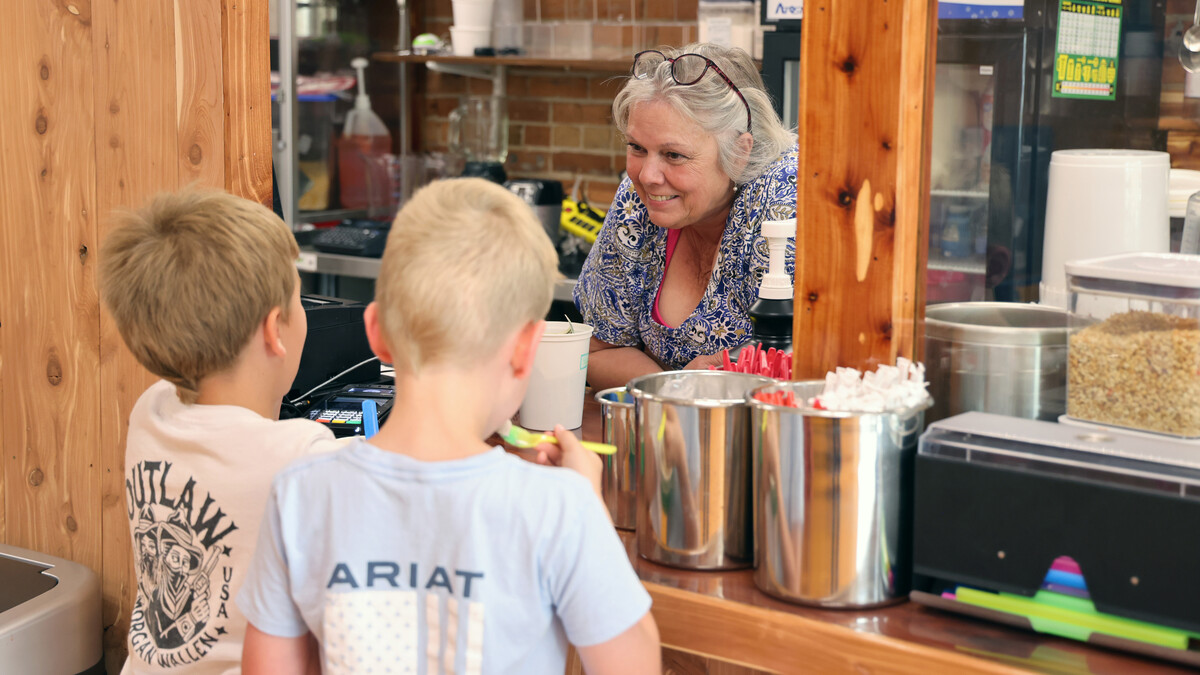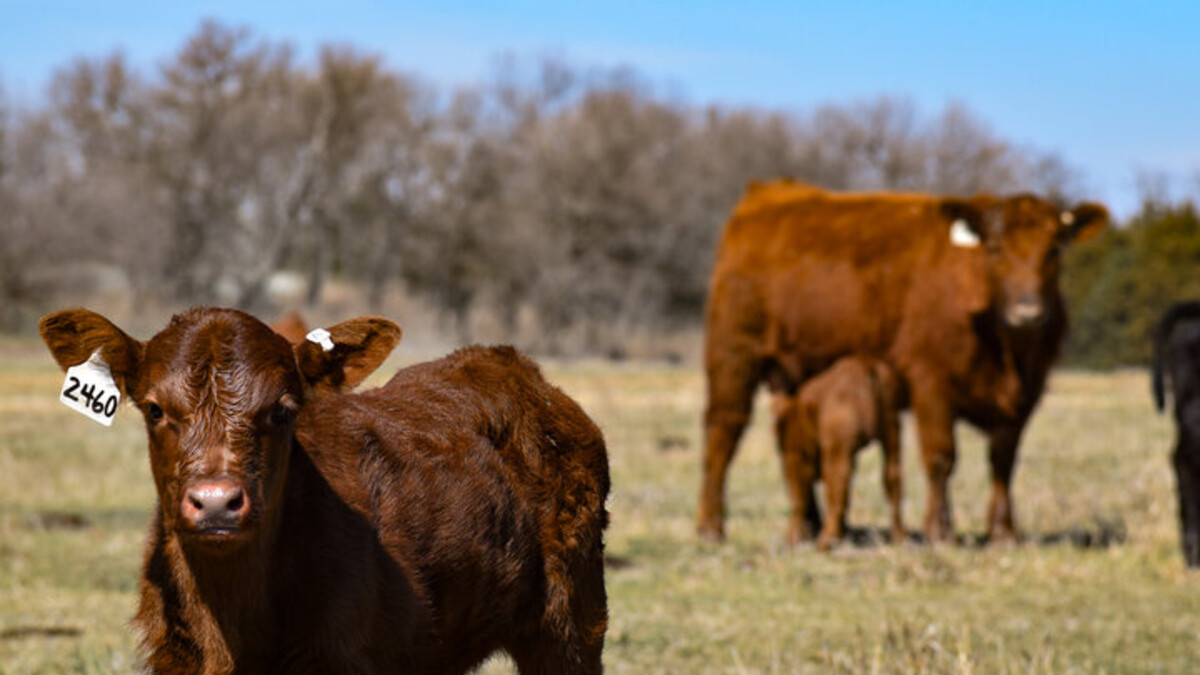Lauren Wilson isn’t exactly sure how she landed at the University of Nebraska–Lincoln to study agriculture, genetics and plant pathology. But she is thrilled to be here.
Wilson is a senior plant and landscape systems major minoring in plant pathology with the goal of someday working in a lab to genetically engineer disease resistance in crops.
Her interest in science began in middle school when a long-term substitute teacher made learning fun and interesting. But in high school, her involvement in competitive dance took priority.
“I went to dance classes right after school and trained and sometimes skipped school to go to classes,” Wilson said. “I wanted to be a professional dancer — that was my life.”
After high school, she moved to Las Vegas and trained for six months at the Theater Arts Preparatory School, a trade school designed specifically to prepare dancers for the job market. She then spent an additional six months auditioning for dance jobs.
“I slowly realized that what I grew up thinking being a dancer was like was not at all what it was in real life,” Wilson said. “Class was so much fun, and then you get to the real world and as a job, it was so stressful with no security. I was losing a ton of money just living. So, I moved back home to figure out what to do next.”
With encouragement from her parents, she enrolled at Nebraska and took her first class — PLAS SOIL 153 Soil Resources — only offered online because of Covid.
She then took PLAS 131 Plant Science, PLAS 215 Genetics and AGRO 809B Transgenic Strategies for Disease Resistance with Don Lee, agronomy professor.
“I found the area I wanted to study with these classes,” Wilson said. “Working in transgenics for disease resistance is exactly what I want to do.”
Eventually, Lee asked her to work as a teaching assistant for PLAS 131, both in the classroom for recitations and for writing up experiments for the online section.
“This year, Lauren is on our genetics teaching team,” Lee said. “She has the experience, which benefits our students learning. She helps them by applying the biology and the science discover technology she has learned from both her courses and her jobs with research programs on campus.”
Wilson joined the lab of Luis Gerardo Alejandro Posadas Martinez, research assistant professor, for an undergraduate internship in Summer 2022 and continued to work in the lab through spring 2023.
Posadas Martinez’s research primarily focuses on large-scale soybean DNA genotyping very similar to the work setting of an industry-version of a production genotyping lab. In addition to operating lab equipment and protocols, students in his lab gain hands-on experience in the preparation and handling of nucleic acids, their physical and chemical properties and the downstream processes associated with genotyping and how that translates into useful information. Students also learn data management and organization and basic programming to work with the large amounts of data being generated. Outside the lab, students help in the seed laboratory and with tissue sampling out in the field.
“Lauren is a very energetic and inquisitive person,” Posadas Martinez said. “She’s very sociable and her interpersonal skills helped our group establish a good rapport as a team. I quickly learned that she was the glue in our team that helped us interact better.”
Wilson then completed an internship with Kyle Broderick, plant diagnostician and coordinator of the Plant and Pest Diagnostic Clinic in the Department of Plant Pathology, during the summer of 2023 and continues as a part-time student worker.
“Lauren was a great addition to the clinic,’ Broderick said. “She was willing to try new things and was not afraid of making mistakes. Too often students are afraid to attempt new protocols without a lot of direction, but Lauren has always been happy to dive in and figure things out.”
Broderick said mistakes are an extremely common part of research, and it’s rare for undergraduates and many graduate students to tolerate mistakes and failed experiments without getting discouraged. Failures can be a much better learning experience than when everything goes as planned.
“Wanting to go into crop breeding with a focus on disease resistance, Lauren is bound to experience a lot of new problems and is likely to make a lot of mistakes,” Broderick said. “I am confident she’ll be able to take this attitude to the next level and succeed in her academic career.”
